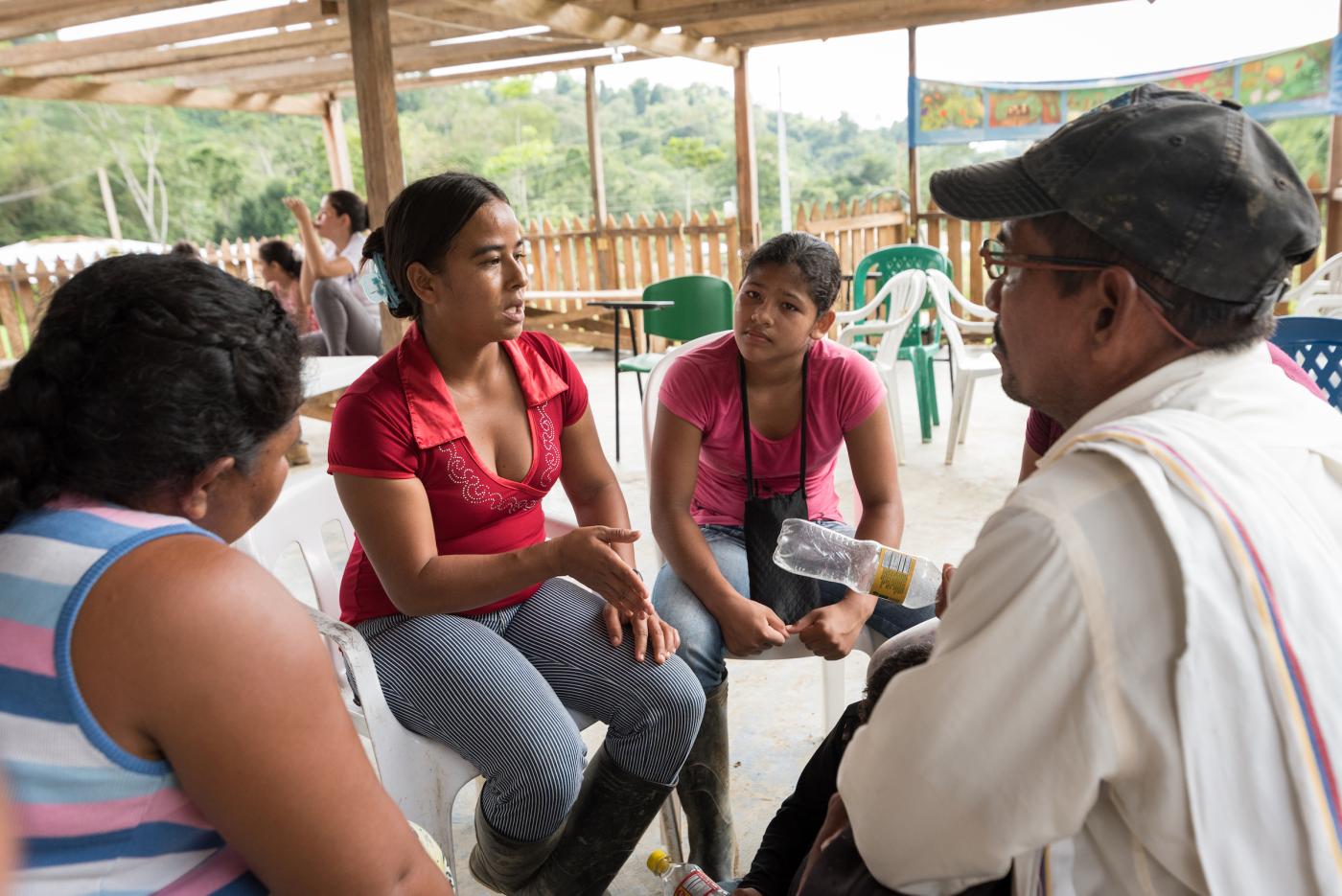Upon the 20th anniversary of the UN Resolution 1325, the question is still being answered as to whether women’s important work in peace and security is getting the visibility it deserves.
Resolution 1325 recognized the brutal, disproportionate reality of conflict for women and girls around the world, and also recognized the importance of their equal participation in all aspects of peace and security.
The Non-governmental Organization Working Group on Women, Peace and Security, of which the World Council of Churches (WCC) is a part, wrote an open letter in October to the UN calling on all member states to prioritize women’s meaningful participation in all aspects of peace and security, prior to the annual Security Council Open Debate on Women, Peace and Security on 29 October.
“Among the statements delivered by the over 138 women civil society leaders from 32 countries to the UN Security Council so far, women’s equal participation has been a central demand,” the letter reads. “Full, equal and meaningful participation means direct, substantive and formal inclusion of diverse women so that they can influence the outcome of negotiations and other processes and their implementation.”
The letter points out that participation without the ability to influence the outcome is not participation—it is observation. “Ensuring meaningful participation requires dismantling systemic gender inequality and discrimination; addressing barriers to participation, including patriarchal structures, sexual and gender-based violence and lack of access to healthcare, and the inaccessibility of information about, communications within, and spaces where peace processes take place; and proactively ensuring that diverse women are included.”
Women human rights defenders today face increasing repression around the world. “Threats and attacks on human rights defenders and peacebuilders are unacceptable and serve as a deterrent to their participation and leadership, especially in contexts where women must already overcome cultural, political, economic or other barriers to entering public life,” the letter reads. “It is therefore essential that their integral, independent role in promoting human rights, preventing conflict and ensuring peace is recognized and defended.”
The letter calls for the full, equal and meaningful participation of women in all aspects of peace and security.
“As the international community takes its next steps to address new challenges to peace and security, including climate change and public health crises such as COVID-19, it is critical that all processes prioritize women’s participation,” reads the letter. “Women’s direct and formal participation can be achieved by prioritizing, resourcing and actively supporting the full, equal and meaningful participation of women and girls in all their diversity in all aspects of peace and security, including conflict prevention efforts, peace processes and the implementation of peace agreements.”
WCC moderator Dr Agnes Abuom spoke at an event on 21 October commemorating the 20th anniversary of UN Resolution 1325, hosted by the Centre for Research, Training and Publication at Hekima University and the Hekima Institute for Peace Studies and International Relations.
Abuom reflected that women who have been actively negotiating peace should be more visible in the public eye. “Women’s participation in peace processes is barely acknowledged in formal peace-related spaces, including the media,” she said.
Results of the 2020 WACC-led Global Media Monitoring Project expected early next year will reveal whether there has been any improvement on the patterns seen in the last iteration of the research five years ago. “At that time, we found that women’s voices were muted in news on peace and security; in a sample covering mainstream news media in 15 transitional countries, women were only 13% of the sources and subjects in the stories,” said Abuom. “Women’s experiences and responses were to a significant extent presented through gender stereotyped narratives.”
Churches can help change these narratives, Abuom said. “Based on the reach of churches on the ground, the challenges, though many and impactful, can also be mitigated by our input,” she said. “News media should strive to ensure that women’s voices, opinions and issues matter by, for instance, ensuring that women are at least 50% of those interviewed for the stories.”







